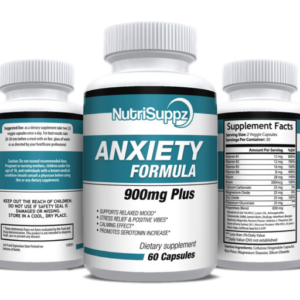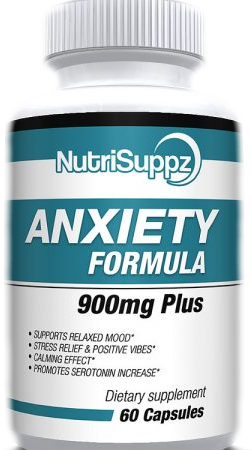31 Aug Balancing Act: How the Autonomic Nervous System Affects Anxiety
Balancing Act: How the Autonomic Nervous System Affects Anxiety
The autonomic nervous system (ANS) plays a pivotal role in regulating many of our body’s involuntary functions, including heart rate, digestion, and respiratory rate. Its influence on anxiety is profound and multifaceted. At Nutrisuppz, we aim to shed light on how the ANS affects anxiety and offer insights into managing its impact. In this blog post, we will explore the functions of the ANS, its connection to anxiety, and strategies for maintaining a balanced nervous system.
What is the Autonomic Nervous System?
The autonomic nervous system is a part of the peripheral nervous system that controls involuntary physiological processes. It operates without conscious effort, managing essential functions such as heart rate, blood pressure, digestion, and body temperature. The ANS is divided into two main branches: the sympathetic nervous system (SNS) and the parasympathetic nervous system (PNS), which work together to maintain homeostasis.
The Sympathetic Nervous System: The Stress Response
The sympathetic nervous system is often referred to as the “fight or flight” system. It activates during stressful situations, preparing the body for a rapid response. When faced with a perceived threat, the SNS triggers increased heart rate, heightened alertness, and energy mobilization. While this response can be beneficial in short-term stressful situations, chronic activation of the SNS can lead to heightened anxiety and stress-related disorders.
The Parasympathetic Nervous System: The Relaxation Response
In contrast to the sympathetic nervous system, the parasympathetic nervous system promotes relaxation and recovery. Often described as the “rest and digest” system, the PNS helps to calm the body after a stress response, slowing heart rate and promoting digestion and relaxation. A well-functioning PNS helps counterbalance the effects of the SNS, fostering a state of calm and reducing anxiety.
The Balance Between SNS and PNS: Managing Anxiety
A balanced interaction between the sympathetic and parasympathetic nervous systems is crucial for maintaining emotional and physical health. Chronic stress or anxiety can lead to an overactive SNS and an underactive PNS, disrupting this balance. This imbalance may result in persistent anxiety symptoms and heightened stress responses. Techniques to manage anxiety often focus on enhancing PNS activity and restoring equilibrium.
Techniques to Support a Balanced ANS
To promote a healthy balance between the SNS and PNS, several strategies can be effective. Engaging in relaxation techniques such as deep breathing, meditation, and progressive muscle relaxation can activate the parasympathetic nervous system and mitigate anxiety. Regular physical exercise also helps regulate ANS function by reducing SNS activation and boosting overall mood. Additionally, maintaining a balanced diet, getting adequate sleep, and practicing mindfulness can support a well-functioning ANS.
Dietary Considerations for ANS Health
Certain nutrients play a role in supporting autonomic nervous system health. Magnesium, for example, helps regulate nerve function and can promote relaxation. Omega-3 fatty acids, found in fish and flaxseeds, also support nervous system health and reduce inflammation. Ensuring a diet rich in these and other essential nutrients can contribute to a balanced ANS and overall mental well-being.
Final Thoughts
The autonomic nervous system significantly influences anxiety levels by regulating the body’s stress response and relaxation mechanisms. By understanding how the SNS and PNS interact, you can implement strategies to maintain balance and manage anxiety more effectively. At Nutrisuppz, we encourage a holistic approach to health that includes supporting your nervous system through lifestyle choices, relaxation techniques, and proper nutrition.



No Comments